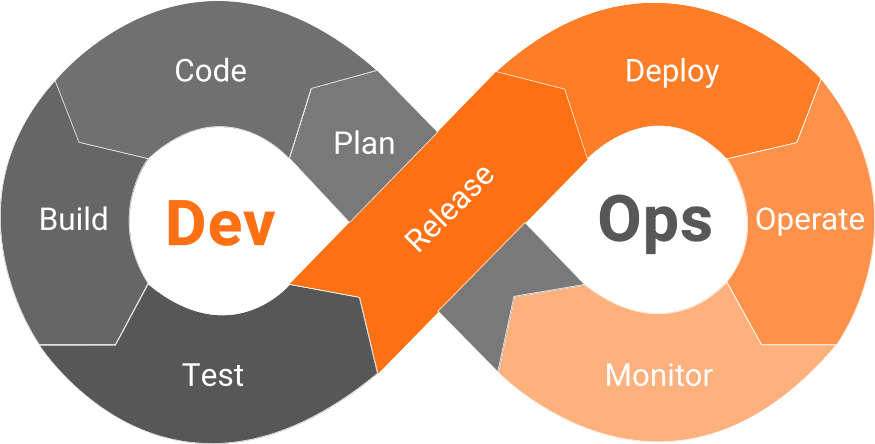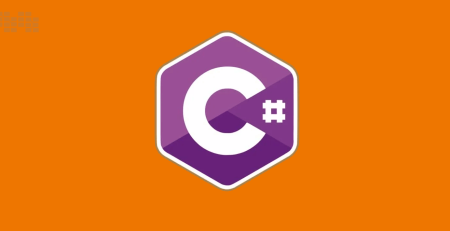Everything You Need to Be a DevOps Engineer
What Is DevOps?
DevOps is an umbrella term for a set of processes, tools, and methodologies for managing software development and IT projects.
The phrases “development” and “operations” are combined to form the term “DevOps.” Patrick Debois coined the term DevOps for the DevOps Days conference in 2009. Debois offered DevOps as an alternate strategy at DevOps Days, describing it as a way for developers to deliver projects faster through careful management and continuous delivery.
Following the summit, DevOps became increasingly popular around the world. ‘The Phoenix Project’ featured DevOps in 2013. (written by George Spafford, Kevin Behr, and Gene Kim). In the book, IT manager Bill uses DevOps to execute a significant project in 90 days.
What Is a DevOps Engineer?
An IT professional who works with software developers, IT operations employees, system users, and management to optimize the distribution of new updates and programs is known as a DevOps engineer.
DevOps engineers are the backbone of their IT organizations, quickly integrating and user-friendly systems.
Benefits of Hiring a DevOps Engineer
There are many benefits to hiring a DevOps expert as they can:
- Help a business integrate its IT systems better, making it more user-friendly
- Help developers release system projects quicker by streamlining the development process
- Implement DevOps tools that help developers improve the quality of their work
- Automate repetitive internal processes
- Help design cyber-secure systems
- Implement DevOps practices like Continuous Integration / Continuous Delivery (CI/CD)
What Does a DevOps Engineer do?
To understand what a DevOps engineer does, you need to understand the Systems Development Life Cycle (SDLC).
The SDLC includes six phases of development, including:
- Planning: When developers outline the project’s scope and requirements
- Analysis: When developers research and analyze the requirements to implement them into the system
- Design: When developers design the architecture of the project
- Implementation: When developers build the system
- Testing: When developers test the system’s code and resolve errors
- Deployment and maintenance: When developers release the system and perform maintenance to keep it running smoothly
The SDLC can be approached in a variety of ways, including the Waterfall and Agile techniques. People use the Waterfall process, which involves systematically working through the SDLC from planning to deployment and maintenance. People who use the Agile method work constantly through the SDLC.
DevOps is based in part on the Agile development methodology. DevOps engineers, in particular, use a variation of the SDLC known as the DevOps Life Cycle. The DevOps LifeCycle, like the Agile model, loops around and repeats itself via these stages:
- Planning
- Continuous feedback
- Operation
- Continuous Integration and Continuous Deployment
- Building
Continuous Integration and Continuous Delivery (CI/CD) principles are also used by DevOps Engineers.
Continuous Integration is the practice of adding code changes to your code repository on a regular basis (essentially compiling code as you write it). The process of automatically and consistently preparing code changes for deployment is known as continuous delivery (pushing new features, bug fixes, and updates to users continuously, rather than in one big update).
What Are the Responsibilities of a DevOps Engineer?
Every DevOps engineer’s day-to-day work life is distinct, as each developer works on different projects for firms with different DevOps techniques. However, most DevOps engineers have several critical duties in common. These are some of them:
Project Management
DevOps engineers frequently supervise and manage many IT projects at the same time. In reality, this entails scheduling and running meetings, setting deadlines, checking in with team members, delegating work, evaluating work, coaching teammates, and advising on project decisions.
When building a system, DevOps engineers consult with users, management, and developers.
Managing System Security
DevOps engineers improve the security of a company’s IT infrastructure by creating cyber-secure systems, updates, and processes. While all DevOps engineers think about security in their daily work, some DevOps engineers (known as SecDevOps engineers) devote their entire careers to system security.
Improving IT Infrastructure
Engineers that work in DevOps seek identify flaws in IT infrastructure and work to fix them. They build solutions to aid developers in working faster, detecting program problems, and designing upgrades based on user feedback.
DevOps developers regularly make incremental improvements to IT infrastructure as they focus on a CI/CD methodology.
Automating Repetitive Tasks
DevOps engineers shorten the time it takes to launch a new system or update by automating repetitive operations. A DevOps engineer, for example, might create a software plugin to assist developers in writing code faster and with fewer errors.
It’s vital to highlight that DevOps engineers aren’t attempting to eliminate the need for developers. They are merely attempting to increase developer productivity by providing simpler and faster development methods.
Performance Benchmarking and Testing
Benchmark testing allows DevOps engineers to monitor the day-to-day operation of IT infrastructure. Benchmark testing aids them in identifying inefficiencies in the system and preventing problems before they occur.
Each DevOps engineer utilizes different benchmark tests depending on their organization and project, however they commonly use tests that follow the seven benchmarking principles.
- Relevance
- Representativeness
- Equity
- Repeatability
- Cost-effectiveness
- Scalability
- Transparency
Optimizing Release Cycles
By lowering the time and resources required for projects or updates, DevOps engineers optimize the system release cycle. DevOps engineers may optimize the release cycle in a variety of ways, including eliminating time sinks, prioritizing essential components of each release, and introducing new software and technologies.
Monitoring and Reporting Errors
Finally, DevOps engineers monitor software and systems on a continuous basis to assist in the rapid resolution of system faults. DevOps engineers are particularly interested in minimizing the time it takes for a mistake to be discovered (i.e., the Time to Detect or TTD) and rectified (i.e., the Time to Minimize or TTM). While some DevOps engineers actively handle system faults, others delegate this responsibility to full-stack developers.
What Skills Do You Need to Be a DevOps Engineer?
Because DevOps engineers have a wide range of duties at work, you’ll need a diversified set of skills to succeed. This section will go through a few of these crucial abilities.
Experience With Automation Tools
You’ll need to learn how to use automation tools first. Automation tools enable you to delegate tedious tasks to computer programs.
Experience With Version Control Systems
You’ll also need to learn about Version Control Systems as a DevOps engineer (VCS). Developers and DevOps engineers can use these tools to keep track of changes to their source code repository. When numerous people add code at the same time, they also settle conflicts.
If you’re a software engineer, you’re probably already familiar with popular VCS technologies like Git. Git is a free and open-source program that works with GitHub and BitBucket to host repositories.
Experience With Repository Hosting Tools
As a DevOps engineer on the development team, you will be familiar with repository hosting tools. Repository hosting technologies, as the name implies, store code in the cloud in a secure manner. These tools also provide access to pre-written code, allowing engineers to accelerate the software development process.
You’ll need to be familiar with three crucial hosting tools as a DevOps engineer. These include:
- GitHub
- GitLab
- BitBucket
Experience With Configuration Management Tools
You’ll also need to be conversant with configuration management technologies as a DevOps engineer. These tools assist IT workers in configuring various system or network parts in a consistent manner. They also assist developers in shortening the time it takes to install a new system.
DevOps engineers utilize one of two configuration management solutions. These are some of them:
- Puppet
- Chef
Experience With Monitoring Software
Because monitoring is such an important part of a DevOps engineer’s job, they must be knowledgeable with monitoring software. Monitoring software allows you to keep an eye on your infrastructure for any problems.
While each organization has its own monitoring strategy, you can use monitoring tools such as:
- Nagios
- Raygun
Coding Skills
Because DevOps engineers are such an important part of the development process, you’ll need to know some of the most used scripting and programming languages to succeed.
A scripting language is a programming language that is run and then translated into machine code. Server-side and client-side scripting languages are the two types of scripting languages. HTML, CSS, and Javascript are some of the most common client-side scripting languages. PHP, Node.js, ASP.NET, Ruby, Perl, Python, and Java are some of the most popular server-side scripting languages.
A compiler converts code into machine code for a computer language. C++ and C are two of the most widely used programming languages.
Expertise in Containerization Tools
Containerization tools are used by DevOps engineers in various businesses. Developers can use containerization technologies to bundle code and deploy it in small containers. Containerization makes it possible for systems to run faster and more effectively across several settings.
To succeed as a DevOps engineer, you should grasp the fundamentals of containerization tools such as:
- Docker
- Kubernetes
Experience With Project Management Tools
Before becoming a DevOps engineer, you must be familiar with project development tools because DevOps engineers manage and monitor development projects. Gantt charts, checklists, and card-based file systems are used by project management software to keep track of projects.
Three of the most prominent DevOps project management solutions are:
- Trello
- Jira
- Azure DevOps
As DevOps engineers frequently work with cloud-based projects, you’ll need to be familiar with cloud-based services to succeed in your new role. Public cloud services are computing services that allow organizations to share networks, storage, and hardware. When organizations use public cloud services, they access their infrastructure through the internet.
Three of the most popular public cloud services include:
- Microsoft Azure
- Google Cloud
- Amazon Web Services (AWS)












Leave a Reply